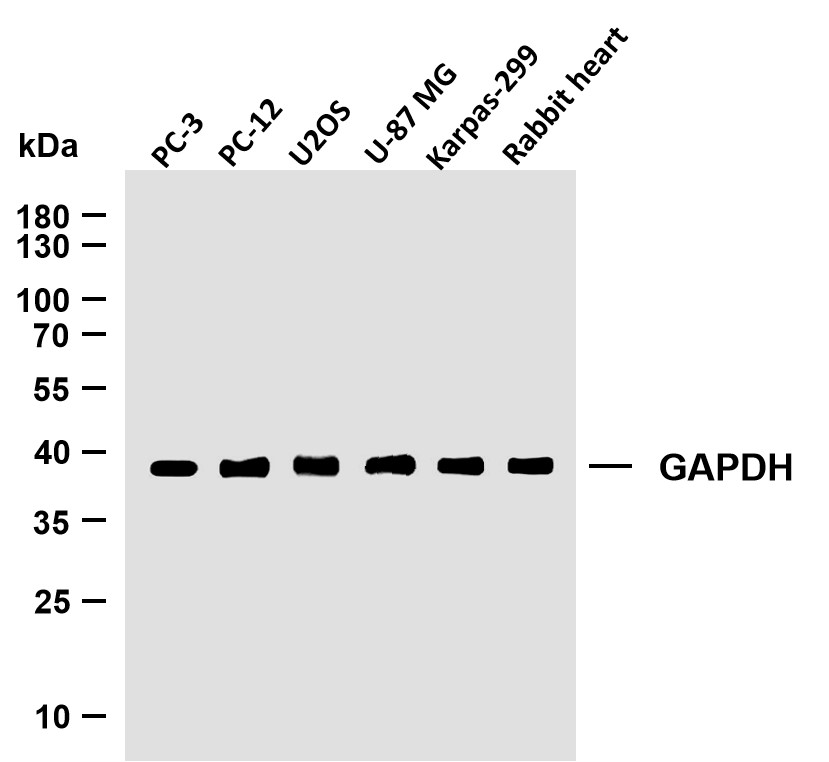
Catalog: IHCM6955
Size
Price
Status
Qty.
100mL
$2,960.00
3 weeks
0
10mL
$356.00
3 weeks
0
3mL
$156.00
3 weeks
0
Add to cart


Collected


Collect
Main Information
Target
Glypican-3
Host Species
Mouse
Reactivity
Human
Applications
IHC
Conjugate/Modification
Unmodified
Detailed Information
Specificity
The antibody can specifically recognize human Glypican-3 protein.
Purification
The antibody was affinity-purified from ascites by affinity-chromatography using specific immunogen.
Storage
2°C to 8°C/1 year,Ship by ice bag
Modification
Unmodified
Clonality
Monoclonal
Clone Number
ABT180
Isotype
IgG1,Kappa
Related Products
Antigen&Target Information
Immunogen:
Synthesized peptide derived from human Glypican-3(GPC3) AA range: 400-500
show all
Specificity:
The antibody can specifically recognize human Glypican-3 protein.
show all
Gene Name:
GPC3 OCI5
show all
Protein Name:
Glypican-3(GPC3)
show all
Other Name:
Glypican-3 ;
GTR2-2 ;
Intestinal protein OCI-5 ;
MXR7 ;
[Cleaved into: Secreted glypican-3]
GTR2-2 ;
Intestinal protein OCI-5 ;
MXR7 ;
[Cleaved into: Secreted glypican-3]
show all
Background:
Cell surface heparan sulfate proteoglycans are composed of a membrane-associated protein core substituted with a variable number of heparan sulfate chains. Members of the glypican-related integral membrane proteoglycan family (GRIPS) contain a core protein anchored to the cytoplasmic membrane via a glycosyl phosphatidylinositol linkage. These proteins may play a role in the control of cell division and growth regulation. The protein encoded by this gene can bind to and inhibit the dipeptidyl peptidase activity of CD26, and it can induce apoptosis in certain cell types. Deletion mutations in this gene are associated with Simpson-Golabi-Behmel syndrome, also known as Simpson dysmorphia syndrome. Alternative splicing results in multiple transcript variants. [provided by RefSeq, Sep 2009],
show all
Function:
Disease:Defects in GPC3 are the cause of Simpson-Golabi-Behmel syndrome (SGBS) [MIM:312870]; also known as Simpson dysmorphia syndrome (SDYS). SGBS is a condition characterized by pre- and postnatal overgrowth (gigantism) with visceral and skeletal anomalies.,Function:Cell surface proteoglycan that bears heparan sulfate.,Function:Cell surface proteoglycan that bears heparan sulfate. May be involved in the suppression/modulation of growth in the predominantly mesodermal tissues and organs. May play a role in the modulation of IGF2 interactions with its receptor and thereby modulate its function. May regulate growth and tumor predisposition.,similarity:Belongs to the glypican family.,tissue specificity:Highly expressed in lung, liver and kidney.,
show all
Cellular Localization:
Cytoplasmic
show all
Tissue Expression:
Research Areas:
>>Proteoglycans in cancer
show all
Reference Citation({{totalcount}})
Catalog: IHCM6955
Size
Price
Status
Qty.
100mL
$2,960.00
3 weeks
0
10mL
$356.00
3 weeks
0
3mL
$156.00
3 weeks
0
Add to cart


Collected


Collect
Recently Viewed Products
Clear allPRODUCTS
CUSTOMIZED
ABOUT US
Toggle night Mode
{{pinfoXq.title || ''}}
Catalog: {{pinfoXq.catalog || ''}}
Filter:
All
{{item.name}}
{{pinfo.title}}
-{{pinfo.catalog}}
Main Information
Target
{{pinfo.target}}
Reactivity
{{pinfo.react}}
Applications
{{pinfo.applicat}}
Conjugate/Modification
{{pinfo.coupling}}/{{pinfo.modific}}
MW (kDa)
{{pinfo.mwcalc}}
Host Species
{{pinfo.hostspec}}
Isotype
{{pinfo.isotype}}
Product {{index}}/{{pcount}}
Prev
Next
{{pvTitle}}
Scroll wheel zooms the picture
{{pvDescr}}



















